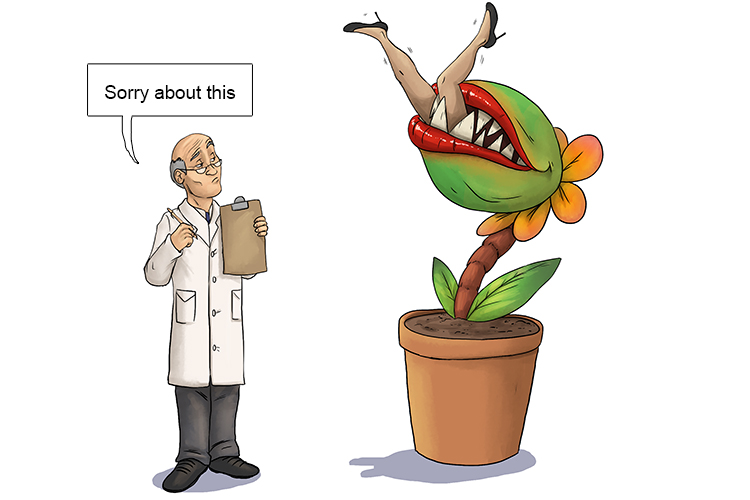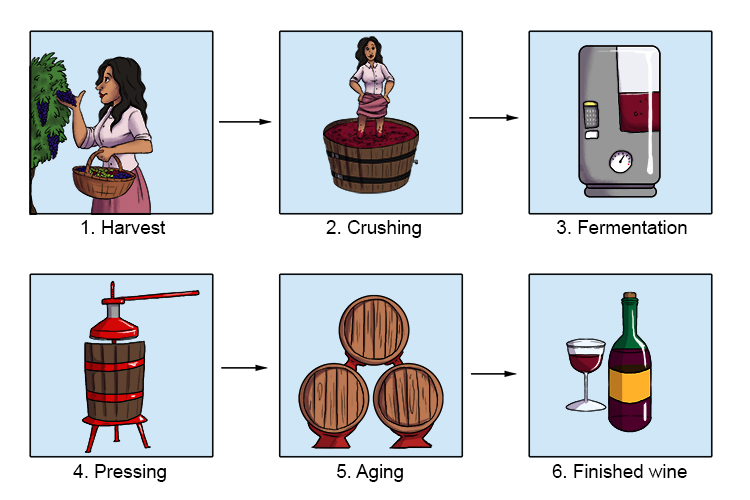Biotechnology – The manipulation, especially through genetic engineering, of living organisms to produce useful commercial products such as pest-resistant crops and new bacterial strains
To remember the meaning of the term Biotechnology, use the following mnemonic:
The biology technicians issued an apology (biotechnology) after their genetic engineering produced plants that ate people instead of being more commercially viable.

It may help you to recall what biotechnology means if you also remember
Bio = Living/life
Ology = Study of
Biotechnology has been used to create useful products such as:
Beer, wine, bread, organic solvents and antibiotics.
Further developments have created:
Herbicide-resistant plants and new vaccines.

The wine making process involves biotechnology.
In the 1970s, the advancement of genetic engineering led to rapid development in biotechnology research. The realisation that it was possible to make changes in organisms' genetic material (DNA) meant, among other things, that certain human diseases and defects might be prevented and crops could be made resistant to diseases and pests.
Biotechnology now covers lots of different disciplines, including genetics, biochemistry and molecular biology.
New technologies and products are continually being developed, for instance:
- Genetically modified plants and food
- New medicines and therapies
- Biofuels
- Biological treatments
- Innovative chemicals
The positive side of biotechnology includes improvements in crops' nutritional quality and yields, a reduction in the use of pesticides, improved health treatments, and a reduction in the rate of infections.
However, as with so many innovative technologies, there are drawbacks, including:
- Risks of unintentional cross-pollination of plants, which could result in hybrids that might get out of control
- Fears that biotechnology will turn human life into a commodity
- The possibility that the technology might be used for destruction rather than just beneficial purposes
Here's an example of how modification of a plant can help people:
Rice was genetically modified to produce a variety called Golden rice that contains beta-carotene, which helps people who do not get enough vitamin A in their diet. Vitamin A deficiency causes disease that kills over half a million children each year.




